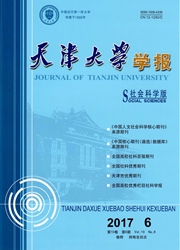

 中文摘要:
中文摘要:
我国个税免征额制度存在两个主要问题,即实行标准免征额扣除方法和累积性调整方式。标准免征额导致个人基本生活费用支出和纳税人赡养系数平均化,不能充分体现垂直公平,弱化再分配效应。累积性调整方式则不能及时适应通货膨胀和居民基本生活支出变化,导致"过头税"和个税规模、平均税率和再分配效应不合理波动。为此,免征额制度应当改革,一方面要放弃完全平均化的标准免征额,使免征额尽可能反映每个纳税人家庭基本生活费用支出实际;另一方面,将免征额累积性调整方式转变为适应性调整方式,建立税收、平均税率和再分配效应持续、稳定增长机制。
 英文摘要:
英文摘要:
There exist two main problems in the system of personal income tax in China,the standard amount of exemption and the approach of accumulative adjustment. With the standard amount of exemption adopted,the individual expenditure for basic livelihood and the individual support coefficient of taxpayers are averaged,which is harmful to the vertical equity of tax burden and weakens the distributive effect. Under the approach of accumulative adjustment,the exemption amount cannot be adjusted for the change of inflation and household expenses promptly,which cause over-tax and unreasonable fluctuations of the revenue,average rate and redistributive effect of personal income tax. So,the exemption system must be reformed. First,the averaged standard exemption ought to be changed and to make exemption reflect the real livelihood expenditure for every taxpayer. Secondly,the approach of accumulative adjustment ought to be converted to the approach of adaptive adjustment in order to establish a sustainable and stable mechanism for the growth of the revenue,average rate and redistributive effect of personal income tax.
 同期刊论文项目
同期刊论文项目
 同项目期刊论文
同项目期刊论文
 期刊信息
期刊信息
